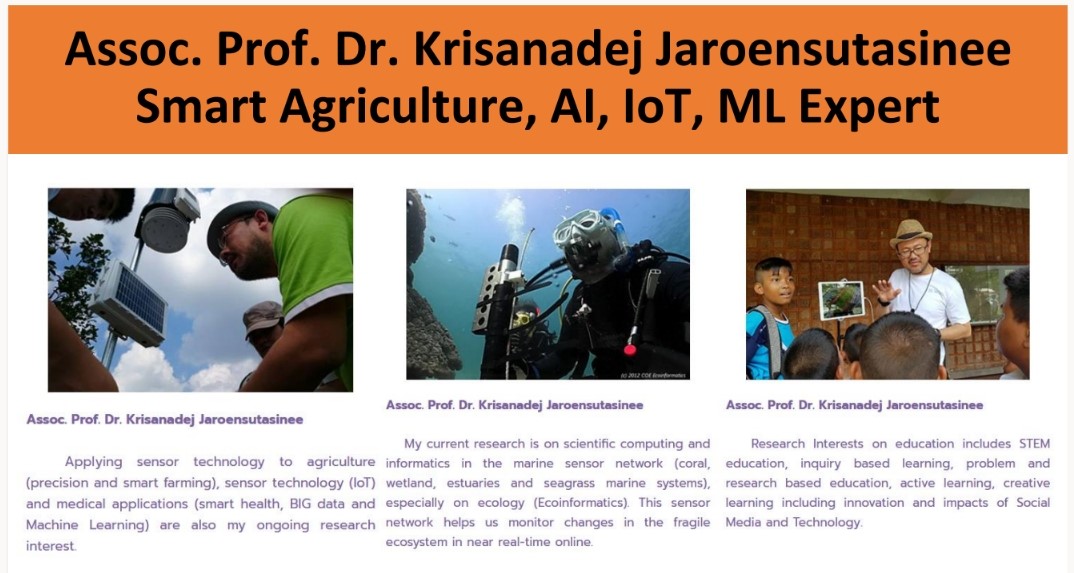WU Continually Establishes International Collaboration for the Data Gathering of Dengue and Zika Prevention under the GLOBE Mosquito Project
In 2022, the Ministry of Health of Thailand reported that the situation of dengue fever in Thailand was worrisome. The total number of infected patients was 27,912 and the total death toll was 25. Most of the deceased were over 15 years old, 19 cases, and 6 cases were less than 15 years old. Walailak University is one of the Thai universities to have always conducted studies on dengue and zika prevention and control.
Assoc. Prof. Dr. Krisanadej Jaroensutasinee, Head of the Center of Excellence for Ecoinformatics, and Assoc. Prof. Dr. Mullica Jaroensutasinee, Walailak University, continually organized the GLOBE Mosquito Project in collaboration with the National Aeronautics and Space Administration (NASA), SEAMEO Network, GLOBE Network, and various international organizations.



For the year 2022, the international collaboration continuously aimed to gather and measure data on mosquito habitat mapping for dengue and zika prevention and control across the world, including Southeast Asia, which is one of the regions that has been affected by dengue and zika fevers. The number of targeted areas was more than 110 countries across the world, including Laos, the Philippines, Vietnam, Madagascar, Myanmar, Saudi Arabia, South Africa, Australia, Spain, Portugal, Russia, and others. The data that were required to be collected were spatial data and the mosquito population.
For the methods of gathering data, the Center of Excellence for Ecoinformatics organized training workshops on using the GLOBE Mosquito Habitat Mapper App. The app was developed for gathering data on the spatial conditions of areas and the mosquito population, which will be the database for developing guidelines and provincial or national policies on dengue and zika virus prevention and environmental management for mosquito control. The attendees who participated in the workshops were local people, students, teachers, college students, and researchers across Thailand, including the general international participants who were interested and international members of the networks.

The app’s users could report the data in their own countries. The data collected by the participants in each country would be shown as maps indicating the mosquito populations and spatial conditions of the areas. The app’s users could also evaluate the risks of dengue and zika fever infection by exploring the data in each region.

Goal 17: Partnerships for the Goals
Goal 3: Good health and well-being
Goal 4: Quality education

